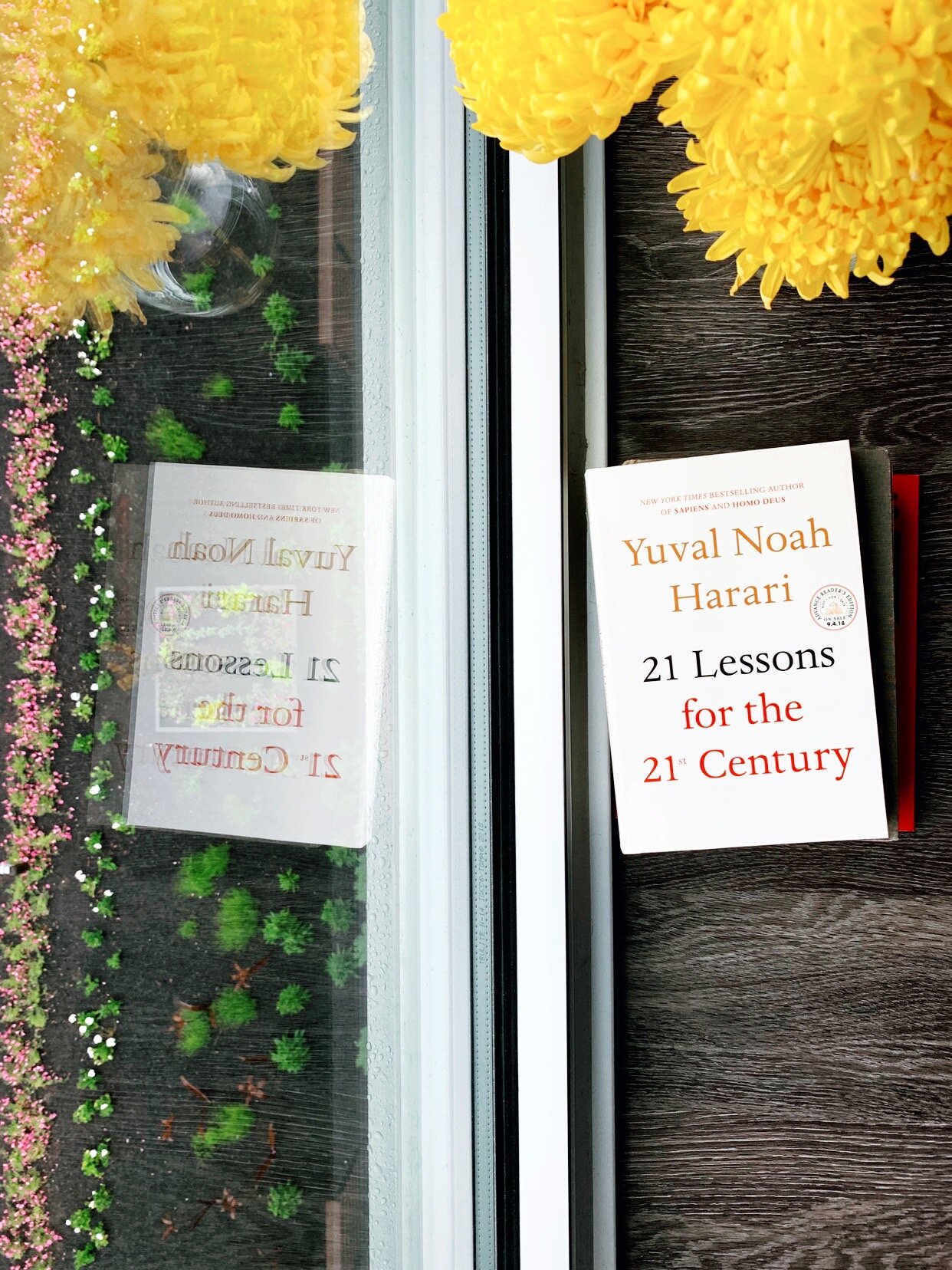21 Lessons for the 21st Century ...
Book Review: 21 Lessons for the 21st Century
Initial Thoughts: Overly generalized and vague, you'll be hard pressed to find many concrete "lessons"— although there's a fair amount of astute insights and quotable aphorisms.
“In a world deluged by irrelevant information, clarity is power.”
Based on all the rave reviews, I thought at first maybe I had missed something until Bill Gates' 3 star review confirmed my initial opinion.
The first portion of the book was my favorite, and although I've already hit my personal limit on digital futurecasting (see: The Inevitable and Machine, Platform, Crowd) Harari provided a plethora of interesting perspectives (... albeit with a paucity of data).
In fact, the whole book is fascinating—but seems to be built more upon Harari's own opinions, mass generalizations, and factual cherry picking than any hard science or research. Technically, you might argue that all nonfiction books have these same qualities, however, next to books such as The Age of Surveillance Capitalism which is utterly stacked with backed up facts ... this one pales in comparison.
Instead of "lessons," Harari could easily have swapped in "questions," each of which are addressed/confronted in the 21 chapters.
By the end of the book, Harari has fallen into repetitive religion bashing and his main "answer" / overall summary as a solution ... meditation. Okay ... Now I'm not a fan of organized religion by a long shot, but this last portion gave me strong editorial rant vibes, and, I'm all for meditation—but as a cure all? I guess I just had higher hopes for this book.
"Silence isn't neutrality; it is supporting the status-quo."
It's almost like Harari used up all his academic prowess in Sapiens, with each book moving farther afield from sound research to personal tirades and guesstimations.
Sapiens: A Brief History of Humankind 5 ⭐️s: Solid material, loved it.
Homo Deus: A History of Tomorrow 4 ⭐️s: Moving towards heavy futurecasting, still compelling.
21 Lessons for the 21st Century 3 ⭐️s: Abstract and loose, borderline sci-fi.
Sweeping and almost all encompassing, this is still an entertaining read.
"Questions you cannot answer are usually far better for you than answers you cannot question."
Things to Consider:
"For as the pace of change increases, not just the economy but the very meaning of 'being human' is likely to mutate. Already in 1848 the Communist Manifesto declared that 'all that is solid melts into air.' Marx and Engels, however, were thinking mainly about social and economic structures. By 2048, physical and cognitive structures will also melt into air, or into a cloud of data bits."
"Terrorists are masters of mind control. They kill very few people but nevertheless manage to terrify billions and rattle huge political structures such as the European Union or the United States. Since September 11, 2001, each year terrorists have killed about 50 people in the European Union, about 10 people in the United States, about 7 people in China, and up to 25,000 people elsewhere in the globe (mostly in Iraq, Afghanistan, Pakistan, Nigeria, and Syria). In contrast, each year traffic accidents kill about 80,000 Europeans, 40,000 Americans, 270,000 Chinese, and 1.25 million people altogether. Diabetes and high sugar levels kill up to 3.5 million people annually, while air pollution kills about 7 million people per year. So why do we fear terrorism more than sugar, and why do governments lose elections because of sporadic terrorist attacks but not because of chronic air pollution?"
"In the twentieth century, industrialized civilization depended on the 'barbarians' for cheap labor, raw materials, and markets, and it often conquered and absorbed them. But in the twenty-first century, a post-industrial civilization relying on AI, bioengineering, and nanotechnology might be far more self-contained and self-sustaining. Not just entire classes but entire countries and continents might become irrelevant. Fortifications guarded by drones and robots might separate the self-proclaimed civilized zone, where cyborgs fight one another with logic bombs, from the barbarian lands where feral humans fight one another with machetes and Kalashnikovs."
For more book reviews, find me on Goodreads.

